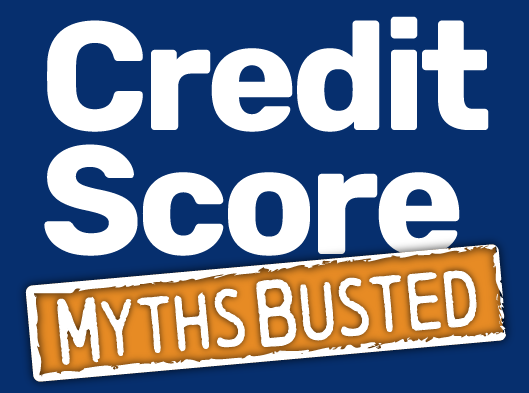
When it comes to credit scores, there’s no shortage of misinformation floating around. From misconceptions about what affects your score to misunderstandings about how to improve it, these myths can lead to poor financial decisions. To help you separate fact from fiction, we’re debunking some of the most common credit score myths and providing you with the truth you need to know.
Myth 1: Checking Your Own Credit Score Hurts Your Score
Reality: This is one of the most pervasive myths out there. Checking your own credit score is considered a “soft inquiry” and does not affect your credit score. In fact, regularly monitoring your credit is a good practice. It helps you stay informed about your credit health and alerts you to any potential errors or fraudulent activity.
Myth 2: Closing Old Credit Cards Will Improve Your Score
Reality: While it might seem like a good idea to close old or unused credit cards, doing so can actually harm your score. Closing a credit card reduces your available credit and can increase your credit utilization ratio—one of the most significant factors in your credit score. It can also shorten your credit history, which can negatively impact your score.
Myth 3: You Only Have One Credit Score
Reality: You actually have multiple credit scores. The three major credit bureaus—Experian, Equifax, and TransUnion—each calculate their own scores based on your credit report with them. Additionally, there are different scoring models, like FICO and VantageScore, which may result in slight variations. So, don’t be surprised if your score varies depending on where you check it.
Myth 4: Paying Off Debt Immediately Boosts Your Score
Reality: While paying off debt is crucial for your financial health, it doesn’t always result in an immediate boost to your credit score. For example, if you pay off a loan and close the account, it can actually reduce your credit mix and shorten your credit history, which may temporarily lower your score. However, over time, maintaining a low balance and on-time payments will positively impact your score.
Myth 5: Income Affects Your Credit Score
Reality: Your credit score is a reflection of your credit behavior, not your income. While a higher income can make it easier to manage debt and avoid late payments, it doesn’t directly impact your credit score. Factors like payment history, credit utilization, and length of credit history are what actually matter.
Myth 6: Carrying a Balance Improves Your Credit Score
Reality: Contrary to popular belief, carrying a balance on your credit cards does not help your credit score. It’s a myth that you need to carry a balance from month to month to build credit. What actually matters is that you make your payments on time. Carrying a balance can lead to high interest charges and increase your credit utilization, which can harm your score.
Myth 7: All Debts are Created Equal
Reality: Different types of debt affect your credit score in different ways. For example, revolving debt (like credit card balances) has a more significant impact on your credit utilization ratio compared to installment debt (like mortgages or auto loans). While it’s essential to manage all debts responsibly, understanding how they affect your credit score can help you prioritize repayment.
Myth 8: Your Credit Report is Always Accurate
Reality: It’s estimated that about 20% of credit reports contain errors. These errors can range from incorrect personal information to inaccurately reported payments. That’s why it’s essential to check your credit report regularly and dispute any errors you find. You’re entitled to a free credit report from each of the three major credit bureaus once a year through AnnualCreditReport.com.
Myth 9: Applying for New Credit Always Hurts Your Score
Reality: While applying for new credit can cause a temporary dip in your score due to a hard inquiry, the impact is usually minor and short-lived. If you’re approved for a new credit line and use it responsibly, it can improve your credit mix and potentially boost your score in the long run.
Myth 10: Using a Credit Repair Service is the Only Way to Fix Your Credit
Reality: While credit repair services can help, you don’t need to pay for one to fix your credit. You can do many of the same things yourself, such as disputing errors on your credit report and paying down debt. It takes time and effort, but improving your credit is absolutely something you can do on your own.
Final Thoughts
Understanding your credit score is crucial for maintaining good financial health. By debunking these myths, you’re now better equipped to make informed decisions that will positively impact your credit score. Remember, the best way to improve your credit is through responsible financial behavior: pay your bills on time, keep your credit utilization low, and avoid unnecessary credit inquiries.
Got more questions about credit? Drop them in the comments below, and let’s keep debunking
